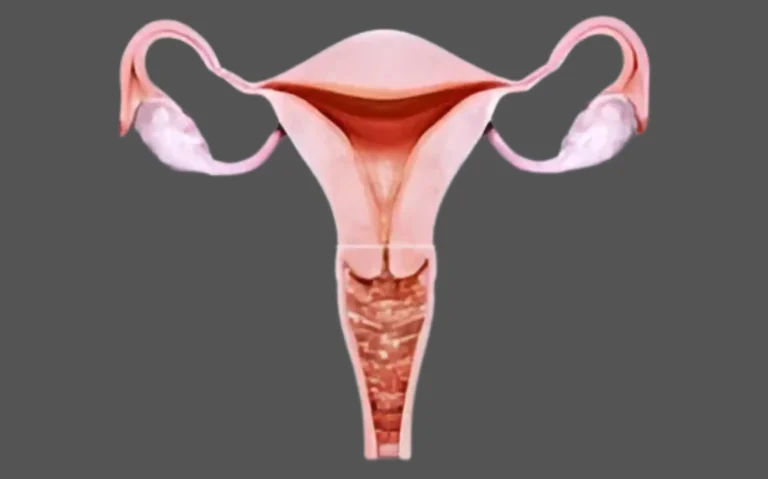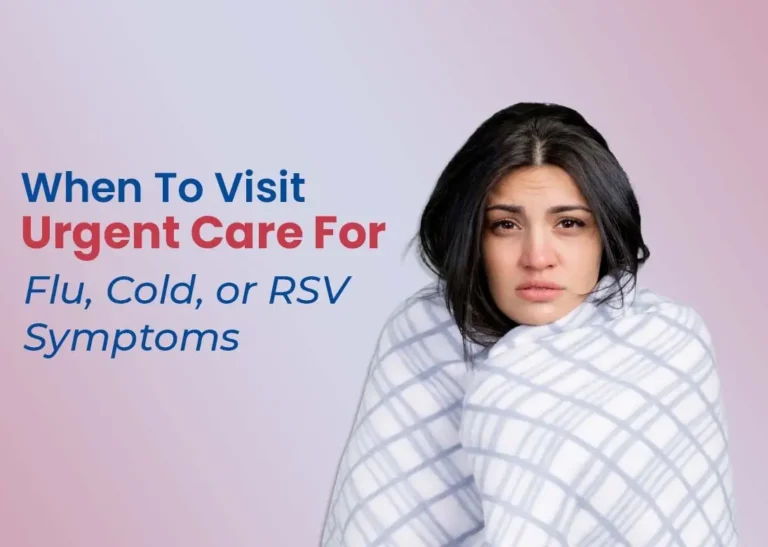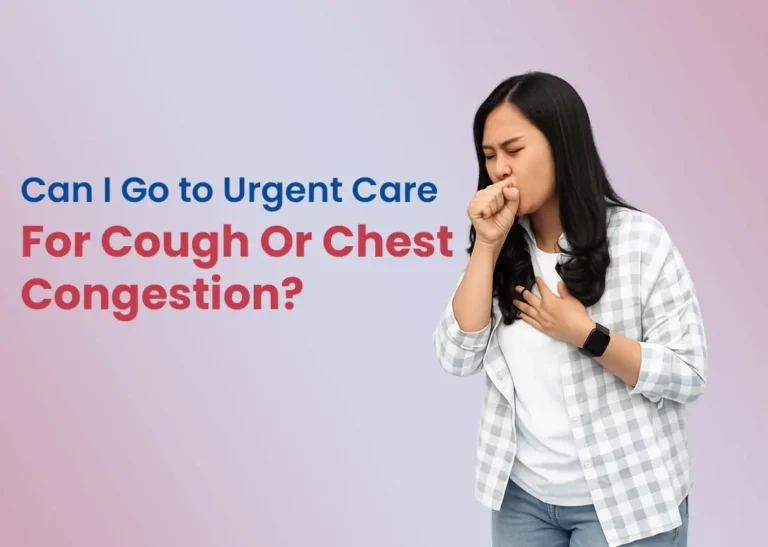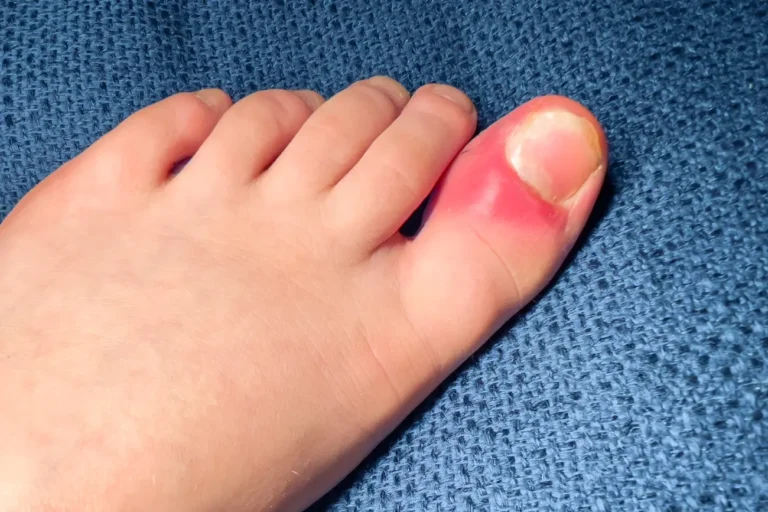Kidney pain can be uncomfortable and even alarming. If you’re experiencing unusual discomfort in your lower back or sides, you may wonder: “Can I go to urgent care for kidney pain?”
The answer depends on the severity of your kidney pain symptoms and the likely cause behind them. Understanding when urgent care is appropriate and when to seek urgent care services can help you make the right decision for your health.
Understanding Kidney Pain

Kidney pain typically presents as a dull ache or sharp discomfort in the back, just below the rib cage on either side of the spine. This pain is different from muscular back pain because it often comes from deep within the body and may be accompanied by other symptoms like nausea, fever, or changes in urination.
Common Causes of Kidney Pain
Kidney Stones:
Hard mineral deposits that form in the kidneys and cause sharp, intense pain, especially during urination. Learn more about kidney pain caused due to stones.
Kidney Infections (Pyelonephritis):
Bacterial infections that start in the urinary tract and travel to the kidneys, causing fever, chills, and flank pain.
Urinary Tract Infections (UTIs):
It often affects the bladder but can spread upward to involve the kidneys.
Hydronephrosis:
Swelling of a kidney due to urine buildup, typically caused by blockage or obstruction.
Polycystic Kidney Disease:
A genetic condition that causes cysts to develop in the kidneys.
Recognizing the source of your pain is crucial in determining where you should seek urgent care.
Should You Go to Urgent Care for Kidney Pain?
Yes, you can go to urgent care for kidney pain, but the real question is: When to Visit Urgent Care for Kidney Pain? Urgent care centers are well-equipped to manage many non-life-threatening conditions, including mild to moderate kidney pain.
Consider visiting urgent care if you’re experiencing any of the following:

- A dull or manageable ache in the lower back or side
- Pain while urinating
- Increased frequency or urgency to urinate
- Cloudy, strong-smelling urine
- Mild nausea without vomiting
- No history of chronic kidney conditions
If symptoms are severe, persistent, or accompanied by fever, vomiting, or blood in urine, it’s best to visit the emergency room instead.
What Urgent Care Can Do for Kidney Pain?
- Perform urinalysis to check for signs of infection or blood in the urine
- Order imaging, like an ultrasound, to detect stones or blockages
- Prescribe medications such as antibiotics or pain relievers
- Refer you to a specialist if further evaluation is needed
Urgent care is a convenient option when your symptoms are concerning but not severe enough to require emergency intervention.
When to Go to the Emergency Room
In certain situations, kidney pain may indicate a serious health issue that needs immediate attention. Visit the emergency room if you experience:
- Severe, stabbing pain that comes in waves and makes it hard to sit still
- High fever and chills, which could signal a kidney infection
- Persistent vomiting
- Confusion or difficulty staying awake
- Blood in your urine
- Difficulty passing urine or complete urinary blockage
- Pain accompanied by known kidney issues, like failure or cysts
These symptoms may point to conditions like advanced kidney stones, infections, or damage that require rapid diagnostic testing and possibly hospitalization.
What to Expect During a Visit to Urgent Care
At an urgent care facility, providers will begin with a review of your symptoms and medical history. A physical exam may include gently pressing on your back or sides to pinpoint the location of pain. Urinalysis and blood tests are common, and imaging may be ordered if available on site.
Potential Treatments:
- Antibiotics for infections like pyelonephritis or UTIs
- Pain medications for temporary relief from kidney stone discomfort
- Hydration therapy if dehydration is contributing to the issue
- Referrals for follow up with a urologist or nephrologist if needed
Urgent care professionals aim to provide prompt relief while ruling out serious conditions.
How to Prevent Kidney Pain in the Future
Preventive care plays a key role in maintaining kidney health. Whether your current symptoms are a one-time concern or part of a recurring issue, here are steps to reduce your risk:
- Stay well hydrated, Drinking enough water helps flush toxins and prevent stone formation.
- Eat a kidney friendly diet, Limit salt, processed foods, and sugar. Include fruits, vegetables, and whole grains.
- Avoid holding in urine, Regularly empty your bladder to prevent infections.
- Practice good hygiene, Especially important for preventing urinary tract infections.
- Get regular check ups, Especially if you have a family history of kidney disease or high blood pressure.
Priority Urgent Care Is Here to Help
At Priority Urgent Care, we understand how scary and uncomfortable kidney pain can be. Our experienced medical team is equipped with diagnostic tools to evaluate your symptoms and guide you toward the right treatment, quickly and compassionately. Walk in today or book ahead online for faster care.






